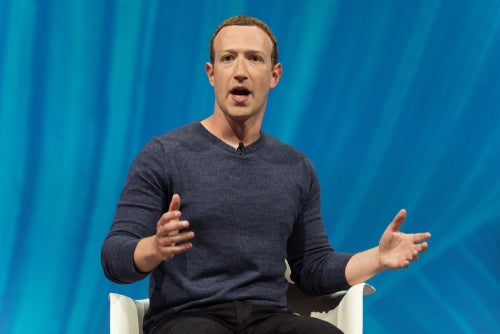
Meta chief executive Mark Zuckerberg has told investors that the firm is unlikely to profit in the near term from its multi-billion dollar investment in generative AI. During the social media giant’s latest earnings call, the firm announced that its anticipated yearly capital expenditures would increase to $35-40bn to fund its “AI roadmap,” with that investment expected to rise in 2025. Zuckerberg strongly implied that material returns from this investment would not be seen for several years at least. Markets reacted poorly to the earnings call and a subsequent light revenue forecast, with Meta’s share price declining by 15% despite its first-quarter annual revenue increase of 27%.
“I think it’s worth calling out that we’ve historically seen a lot of volatility in our stock during this phase of our product playbook, where we’re investing in scaling a new product but aren’t yet monetizing it,” said Zuckerberg. “We saw this with Reels, Stories, as News Feed transitioned to mobile and more. And I also expect to see a multi-year investment cycle before we’ve fully scaled Meta AI, business AIs, and more into the profitable services I expect as well.”

Meta AI investment prodigious
Meta has invested heavily in building large language models (LLMs) and other like services since early 2023, after it dramatically scaled back funding for its metaverse Reality Labs division. Meta’s AI initiatives to date have included an overhaul of its hardware and software capacity to support new AI-powered applications and its launch of the Llama family of large language models. As recently as last week, Meta released Llama 3, its largest model to date and – the firm claimed – superior to similarly-sized LLMs like Claude’s Sonnet, Mistral Medium and OpenAI’s GPT-3.5.
Not all of Meta’s AI innovations have been greeted positively. Despite being characterised by Zuckerberg previously as the “most intelligent AI assistant that you can freely use,” Meta’s AI Assistant has been criticised for answering user queries with strange, illogical and irrelevant responses. Its commitment to open-sourcing its older Llama 2 LLM has also been questioned, too, with some developers pointing out that this was incompatible with certain conditions within the model’s license.
Zuckerberg optimistic about AI commitment
Zuckerberg pointed out that public interest in Meta’s AI services remained strong. “Tens of millions” of users, he said, had already used the firm’s Meta AI assistant. “When I first checked in with our teams, the majority of feedback we were getting was people asking us to release Meta AI for them, wherever they are. We’ve started launching Meta AI in some English-speaking countries, and we’ll roll out in more languages and countries over the coming months.”
Meta had begun to see practical benefits accruing from its AI investments, including utilising its AI recommendation system to improve engagement with ads on Facebook and Instagram. “If you look at our two end-to-end AI-powered tools, Advantage+ Shopping and Advantage+ App Campaigns,” said Zuckerberg, “revenue flowing through those has more than doubled since last year.”
Ad insertion is one way in which Meta sees how generative AI might contribute toward the firm’s profits in the long term, added its chief executive. Another was the technology’s integration into products released or in development at its Reality Labs division. “For example, with RayBan Meta smart glasses, people in the US and Canada can now use our multimodal Meta AI assistant for daily tasks without pulling out their phone,” said Zuckerberg. Though sales of the augmented reality glasses and its Quest 2 mixed reality headset remain strong, revenues at Reality Labs continue to trail costs, with Meta reporting an operating loss of $3.8bn for the division in Q1.






